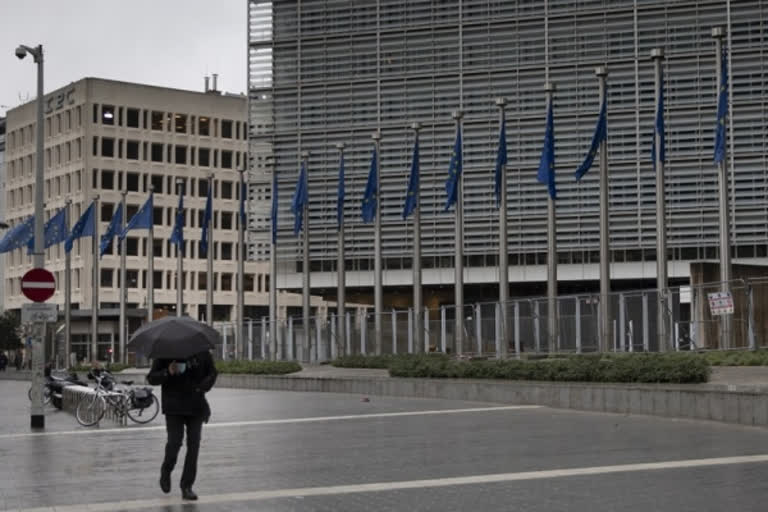Brussels: Negotiators from the European Union and Britain worked through the night and into Christmas Eve to put the finishing touches on a trade deal that should avert a chaotic economic break between the two sides next week.
Trade will change regardless come Jan. 1, when the U.K. leaves the bloc’s single market and customs union. But both sides have been working furiously to avoid a nightmare scenario, in which the imposition of tariffs and duties would cost billions in trade and hundreds of thousands of jobs and potentially so snarl ports that many goods would struggle to get through. That possibility was starkly illustrated this week when a brief French blockade of British trucks over coronavirus concerns created chaos at ports that is still being sorted out.
After resolving nearly all of the remaining sticking points, negotiators combed through hundreds of pages of legal text Thursday that should become the blueprint for a post-Brexit relationship.
As during much of the nine-month negotiations, the issue of EU fishing fleets in British waters proved the most intractable and divisive, with negotiators still haggling over quotas for some individual species as dawn came and went.
Still, sources on both sides said the long and difficult negotiations were on the cusp of being wrapped up as negotiators, holed up at EU headquarters in Brussels with a stack of pizzas, worked to deliver the text to their leaders on Thursday.
Irish foreign affairs minister Simon Coveney said there appeared to be “some sort of last-minute hitch” over fish, but that it was not surprising. He said he expected announcements of a deal from London and Brussels “later on today.”
The agreement would then go to the 27 EU nations seeking unanimous approval, as well as the blessing of the EU and British parliaments. It’s expected to get those approvals.
Read: UK negotiator in Brussels amid last-minute Brexit talks
Britain’s currency, the pound, rose on expectations of a deal, up 0.5% against the dollar to just under $1.36.
It has been 4 1/2 years since Britons voted 52%-48% to leave the EU in order to — in the words of the Brexiteers’ campaign slogan — “take back control” of the U.K.’s borders and laws.
It took more than three years of wrangling before Britain left the bloc’s political structures on Jan. 31. Negotiating how to disentangle economies that were closely entwined as part of the EU’s single market for goods and services took even longer.
Despite the apparent breakthrough, key aspects of the future relationship between the 27-nation bloc and its former member remain uncertain. But it leaves the mutually dependent, often fractious U.K.-EU relationship — and its 675 billion pounds ($918 billion) in annual trade — on a much more solid footing than a disruptive no-deal split.
If a deal is announced, British Prime Minister Boris Johnson will be able to claim to have delivered on the promise that won him a resounding election victory a year ago: “Get Brexit Done.”
